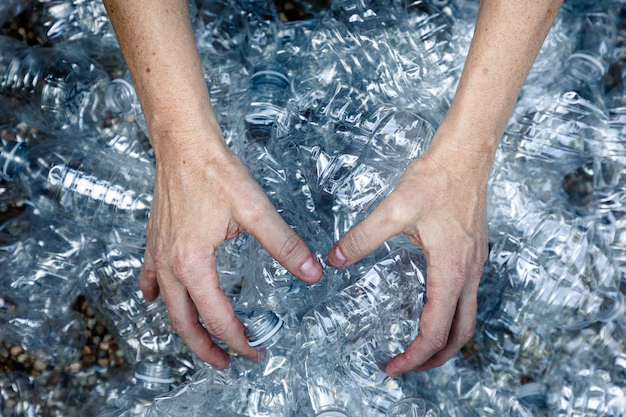How to Responsibly Dispose of Your Old Refrigerator
Has your trusty refrigerator, the silent companion of countless meals and snacks, finally waved the white flag? An old refrigerator can take up space, consume unnecessary electricity, and sometimes become an environmental hazard if not disposed of properly. The good news is that you don’t need to dread the process of getting rid of it. There are practical, environmentally-friendly ways to dispose of an old fridge. Here’s how to do it efficiently and responsibly.
Understanding the Impact of Refrigerator Disposal
Before diving into the disposal methods, it’s vital to recognize the impact a refrigerator can have on the environment. Refrigerators contain materials and chemicals, such as refrigerants and foams, which could harm the ozone layer. Disposing of these appliances responsibly helps in minimizing such environmental damage.
Why Responsible Disposal Is Important
- Environmental Safety: Old refrigerators contain refrigerants that could contribute to ozone depletion.
- Energy Conservation: Reducing the number of inefficient appliances in use helps conserve energy.
- Resource Recovery: Many parts of a fridge, like metals, can be recycled, easing the demand for raw materials.
Options for Disposing of Your Old Refrigerator
1. Retailer or Manufacturer Take-Back Programs
One of the easiest ways to dispose of an old refrigerator is to check if the company you bought it from offers take-back programs. Many retailers offer services where they either take away your old appliance when delivering a new one or provide guidelines for disposal.
- Convenience: Eliminate the hassle by coordinating with the delivery of a new appliance.
- Environmental Assurance: Retailers often have arrangements to recycle these appliances responsibly.
2. Local Waste Management Services
Your local waste management services may offer specific collection days or pickup services for bulky items such as refrigerators. Contacting them can provide you with a straightforward path to disposal.
- Scheduled Pickups: Some municipalities offer periodic free pickups for large appliances.
- Guided Disposal Schedule: They can inform you of requirements, such as the need to remove doors for safety.
3. Junk Removal Services
Hiring a junk removal company can be another efficient method. These services can be especially useful if you're looking to get rid of multiple items at once.
- Comprehensive Service: They handle the heavy lifting and logistics of proper disposal.
- Recycling Options: Many services recycle parts of your appliance to minimize environmental impact.
4. Donation or Selling
If your refrigerator is still functional, donating or selling it can be a great way to give it a second life. Look for charities, thrift stores, or online marketplaces.
- Charitable Giving: Some organizations accept working appliances to support low-income families.
- Profit Potential: If selling, platforms like online marketplaces can help find a new owner quickly.
5. Recycling Centers
Many areas have dedicated appliance recycling centers which specialize in breaking down old appliances for their recyclable parts.
- Specialized Disposal: These centers are equipped to handle and recycle harmful components safely.
- Rebates and Incentives: Some centers offer monetary incentives for recycling appliances.
Preparing Your Refrigerator for Disposal
To ensure safety and compliance with local regulations, certain preparations are necessary.
Cleaning and Safety Measures
- Unplug in Advance: Disconnect the refrigerator a day or so in advance to defrost it.
- Clean Thoroughly: Remove all food items to prevent odors and spills.
- Secure Internal Components: Tape down loose internal components to avoid movement during transport.
Handling Refrigerants
- Professional Assistance: Consider a certified technician to remove the refrigerants safely.
- Mandatory Step: Many disposal methods require refrigerant removal before acceptance.
Regulations and Compliance
Understanding local regulations about appliance disposal can prevent fines and ensure that environmental standards are met.
Research Local Guidelines
- Municipal Websites: Check online resources or city websites for guidance.
- Waste Management Policies: Make inquiries about the specifics of appliance disposal.
Benefits of Compliance
- Avoiding Penalties: Proper disposal methods prevent regulatory fines.
- Environmental Contribution: Contributes to local and global environmental initiatives.
Eco-Friendly Alternatives
If replacing your old refrigerator, consider options that are more energy-efficient and environmentally friendly.
Energy-Efficient Models
- ERated Appliances: Opt for models with high energy efficiency ratings to reduce environmental impact.
- Long-Term Savings: Lower energy bills compensate for initial higher costs.
Sustainable Brands
- Eco-Conscious Manufacturers: Research brands committed to sustainability in manufacturing practices.
- Innovation in Design: Some manufacturers use less harmful materials, further reducing ecological footprints.
Summary of Key Takeaways 📋
To ensure you’re on the right track, here’s a quick visual summary to guide you through the process of fridge disposal:
- 🗓️ Retailer Take-Back: Convenient & often free with new purchases.
- 🌎 Local Services: Contact waste management for guidance.
- 🏗️ Junk Removal: Useful for multiple-item disposals.
- 🤝 Donation/Sale: Extend appliance life by finding new homes or owners.
- ♻️ Recycling Centers: Provide safe recycling for hazardous materials.
By combining these methods with proper preparation and adhering to local regulations, you can effectively and responsibly dispose of your old refrigerator, contributing to a healthier community and planet for everyone.
Making eco-friendly choices now ensures a cleaner, more sustainable future. Remember, each small step towards responsible disposal paves the way for broader environmental consciousness.

